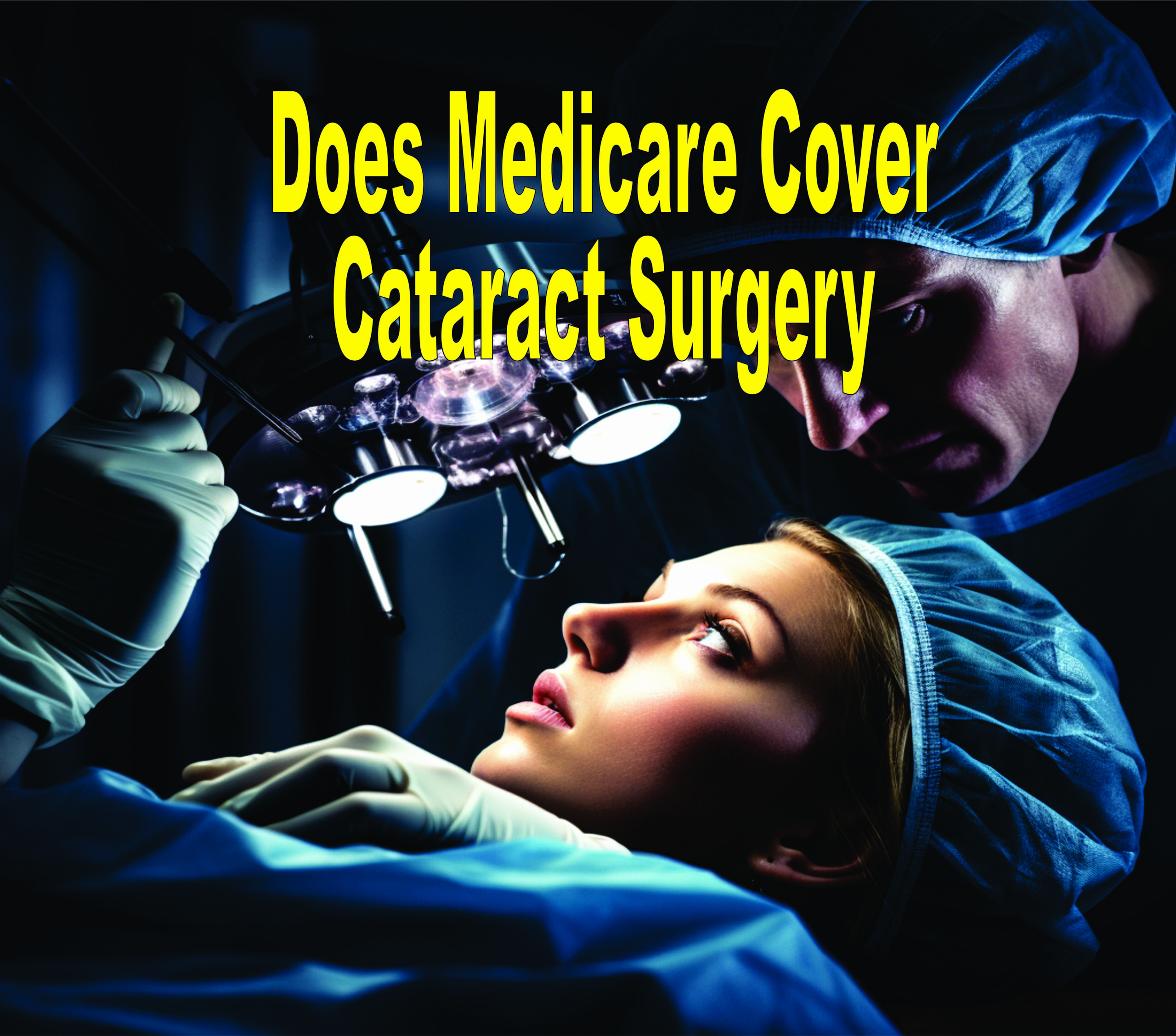Does Medicare Cover Cataract Surgery?

Last Updated on January 25, 2024 by Lori Pace
Seniors have a common eye condition: cataracts that cause a grey area in your eye’s lens. As a result, this can lead to blurred vision, sensitivity, colour fade, double vision, and sensitivity to light. Reports indicate that over half of Americans aged over 80 have cataracts. But, does Medicare cover cataract surgery?
So, if you do not have insurance, cataract surgery may cost you between US$ 3,780 and US$ 6,890. Original Medicare doesn’t cover eye treatment such as contact lenses and glasses, but it covers cataract surgery costs if you meet specific criteria. Medicare covers cataract surgery (conventional or laser techniques).
How Much Does Cataract Surgery Cost with Medicare?
There are two main types of cataract surgery. And, Medicare covers both types of cataract eye surgery.
- Extracapsular is a type of cataract surgery that removes the clouded lenses in one piece. In short, they insert an intraocular lens (IOL) to replace the damaged ones.
- Phacoemulsification is a cataract surgery that uses ultrasound to disintegrate the clouded lens before replacing it with an IOL device.
Depending on your specific diagnosis, the eye doctor will recommend the best cataract surgery for you. The minimal cost for cataract surgery is US$ 3,700. This price can also vary from one state to the next, depending on the patient’s needs.
If you are eligible for Medicare, the cost of your cataract surgery is determined by:
- Your specific Medicare plan
- The type of eye surgery you need
- Time to perform eye surgery
- Where the surgery will happen: at a hospital or clinic.
- If you’re suffering from any existing or pre-existing medical conditions
- Lastly, possible complications after surgery
The cost of cataract surgery with Medicare is usually as follows:
- A total cost of cataract surgery in an eye clinic, or surgery center is $977. Medicare pays $781, while you’ll have to pay approximately US$ 195 from your pocket.
- Cataract surgery at a hospital (in an outpatient department), usually costs about $1,917. Medicare covers up to $1,533, the patient covers the rest of the cost.
These figures do not include physician fees or other charges related to procedures and costs may differ from one state to the next.
Does Medicare Cover Cataract Surgery?
Medicare covers the cost of basic cataract surgery such as:
- Lens implantation
- Removal of cataracts
- One pair of prescription eyeglasses OR a set of contacts post-surgery
Plans of Medicare You Can Apply For
Medicare Part A
This plan covers hospital and inpatient visits. For cataract surgery, in most cases, hospital visits are not necessary. Medicare Part A covers the costs of cataract surgery if you are required to go to hospital.
Medicare Part B
This plan will cover outpatient expenses. Original Medicare plans will cover the cost of cataract surgery. The insurance policy also covers doctor’s visits, including pre- and post-surgical visits.
Medicare Part C
In short, individuals who have Medicare Part C (Advantage plans) receive the same benefits as those with Medicare Part A or Medicare Part B insurance policies for eye surgery.
The type of Medicare Advantage plan, however, will determine if the insurance policy covers all or part of the cost of cataract eye surgery.
Medicare Part D
Medicare Part D covers certain prescription medications that follow cataract eye surgery. You must ensure that your prescribed medication is on the Medicare Part D list. Otherwise, you will have to pay for it out of pocket.
Medigap (Medicare Supplement Plan)
You can expect your Medigap policy to cover certain costs that Original Medicare does not cover. Hence, Medigap policyholders are advised to speak with their healthcare provider to determine covered expenses. Some Medigap plans cover co-pays or deductibles for Medicare Part A and Medicare part B.
Conclusion
Medicare covers cataract surgery and they won’t cover all costs of cataract eye surgery, so you might have to pay some of the cost out of your own pocket. Same applies to those who have Medigap Advantage Plans, which offer partial payment for the entire cost of cataract surgery.
If you have Medicare coverage and are considering having cataract eye surgery, be prepared to pay co-payments, deductibles and premium fees. Moreover, it is good to speak with your eye doctor/physician to determine the exact costs your Medicare insurance plan will cover.
Besides, Medicaid is a popular way for Americans to access healthcare services. So, if you ask, “does Medicaid cover cataract surgery?” we have the answer for you!







